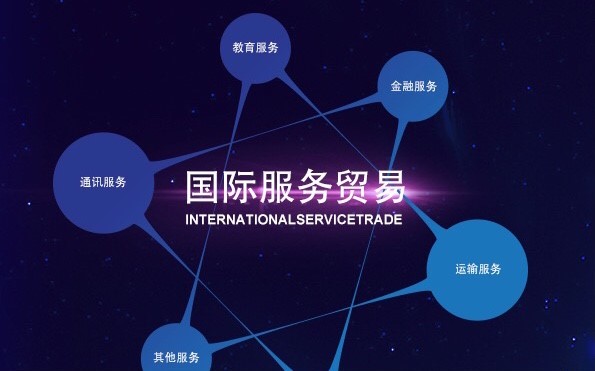
当前课程知识点:Hospitality English > 2 MEET AND GREET > 2.2 Meet and Greet at Accommodations > 2.2.2 First impression (2)
返回《Hospitality English》慕课在线视频课程列表
In this video, you will learn about the role of welcome types, staff dressing code, staff behavior, table setting, and check-out process in making the first impression. Why staff behavior and dressing code is of utmost importance?
返回《Hospitality English》慕课在线视频列表
基本上 迎宾有三种类型
正式 半正式和非正式
而酒店业的员工应该知道
如何以及何时使用哪种类型的欢迎方式
正式的欢迎方式是
在第一次见到顾客时使用
正式的欢迎方式比较有礼貌 可以向顾客问好
比如早上好 下午好
半正式的欢迎方式也是很有礼貌的
但是是在你已经认识顾客的时候使用的
也许是顾客第二次或第三次左右到访你的酒店
在这种情况下 你可以这样向顾客问好比如
你好 生活还好吗 或者多聊一些小事
最后 非正式的欢迎方式只在问候朋友时使用
你可以像这样问候他们 如嗨 最近怎么样 好久不见
你还可以添加一些更多的私人谈话
因此 通过使用准确的欢迎类型
你可以塑造你的酒店形象
如果顾客受到热情的欢迎
那么他或她可能会感到放松和舒适
这将给顾客留下积极的第一印象
在欢迎方式之后
第二个
促使住宿服务给顾客留下正面第一印象的重要因素是
着装规范和员工行为
酒店员工实际上代表了整个酒店的形象
酒店员工的着装或体貌
对给顾客的第一印象起着至关重要的作用
前台接待人员的着装要干净 熨烫整齐 舒适
还应该穿干净舒适的鞋子
除了外貌
员工的行为也很重要
员工要有礼貌 尊重他人
继前台接待人员之后
餐厅厨师的着装也会影响顾客的第一印象
或正面或负面
厨师的体貌包括干净的衣服
头发的遮盖 修剪过的指甲和个人卫生
这一切都可能会出现负面的影响
顾客在餐桌上直接接触的人是服务员或女服务员
因此他们的衣着和卫生很重要
如果顾客注意到服务员的态度很好
但缺乏个人卫生
或者服务员的个人卫生很好
但缺乏良好的态度
这两种情况都会给顾客留下负面的第一印象
因为要给顾客留下正面的第一印象
良好的行为举止和得体整洁的着装都很重要
另一个能直接与顾客见面的最重要的员工
是客房部工作人员
他们的着装也应该是得体的 干净的
他们礼貌和尊重的态度可以强化正面的第一印象
决定第一印象好坏的最重要因素
是餐桌布置
在餐厅或活动中使用的餐桌摆设风格
向顾客传达了一个信息
即他们可以期望得到什么
因此 酒店经营者需要密切关注餐桌设置
餐桌布置基本上有三种类型
包括正式的 休闲的和基本的
在所有餐桌布置的类型中
餐桌的清洁度和布置方式合理性都很重要
正规的餐桌布置用于正式的活动中
以及在优雅的晚宴中
正式的餐桌摆设包括许多餐具
因为它是为多道菜设计的
休闲餐桌摆设是一种非正式的餐桌摆设
它适用于宴会和活动
它与正式的餐桌摆设相似
但餐具较少
由于它是为三道菜而设计的
基本餐桌摆设适合于休闲活动
它通常用于家庭聚餐
它是简单的 但有所需的所有基本用具
直到现在 我们逐渐认识到 在酒店里
前台接待员扮演着给人留下第一印象的重要角色
但在酒吧里
调酒师是给人留下第一印象的重要角色
因此 要给人留下良好的第一印象
调酒师应该具备一些基本的技能和礼仪
例如 他们的着装应该是得体的 干净的
他们应该对顾客友好 准备充分
他们应该是多任务处理者
应该知道如何在压力下处理工作
他们良好的沟通技巧可以让顾客对快速产生正积极印象
顾客在酒店住了几天后 就准备退房了
类似于欢迎过程
也需要员工来退房
把这个过程中做得有吸引力和难忘 让顾客再次光临
有时你的顾客可能会很匆忙
所以不要让这个过程变得复杂
只要方便他们就好
带着微笑友好地交谈
如果客户有一点点时间花在前台
那么你可以问
您准备好退房了吗
你的住得怎么样
一切都满意吗
有什么建议吗"
当他们离开时祝愿他们
享受您的假期
或 祝你回家一路平安
再见
-1.1 Hospitality and Tourism
--1.1.1 Introduction of hospitality
--1.1.2 Introduction of tourism (1)
--1.1.3 Introduction of tourism (2)
--1.1.4 Basic conception of tourism (1)
--1.1.5 Basic conception of tourism (2)
-1.2 Tourism Industries
--1.2.4 Convention & exhibition
--1.2.5 Entertainment & recreation
-1.3 Nature of Tourism Businesses
--1.3.2 Characteristics of hospitality
--Week 1 Quiz
-2.1 Basic Approaches and Etiquette of Hospitality
--2.1.1 Basic approaches and etiquette of hospitality
-2.2 Meet and Greet at Accommodations
--2.2.3 Know how to offer more
-2.3 Meet and Greet at Other Situations of Hospitality
--2.3.1 At transportation services
--2.3.3 At conventions and exhibitions
--2.3.4 At entertainment and recreation situations
-2.4 Communication Skills of Online Travel Agency
--2.4.1 Communication skills of online travel agency
--Week 2 Quiz
-3.1 Culture and Communication
--3.1.2 The characteristics of culture
--3.1.3 What is communication?
--3.1.5 Myths of communication
-3.2 Barriers to Cross-cultural Communication
-3.3 Cross-cultural Communication
--3.3.2 Cross-cultural verbal communication
--3.3.3 Hofstede's cultural dimensions (1)
--3.3.4 Hofstede's cultural dimensions (2)
-3.4 International Practice in Cross-cultural Communication
--3.4.1 International practice in cross-cultural communication
--Week 3 Quiz
-4.1 Getting to Know Tourism Literature
--4.1.1 Significance of tourism literature
--4.1.2 Proper way to choose for reading
-4.2 Capturing the Main Ideas
--4.2.1 Starting with the title & abstract
--4.2.2 Following the structure to focus
--4.2.3 Identifying topic sentences
-4.3 Accumulating Idiomatic Expressions
--4.3.1 Expressions of defining & categorizing
--4.3.2 The extensive use of passive voice
-4.4 Summarizing Reading & Thinking
--4.4.1 Writing a summary of your readings
--4.4.2 Taking notes of your thinking
--Week 4 Quiz
-5.1 What Is A Literature Review
--5.1.1 The definition and types of literature review
--5.1.2 Systematic approaches of literature review
-5.2 Collection and Analysis of Literature
--5.2.2 Methods of literature collection
--5.2.3 Analysis of literature
-5.3 Content of Literature Review
--5.3.1 Concepts, propositions, and theories
--5.3.2 Conceptualization and theoretical framework
--5.3.3 Operationalization of the research framework
-5.4 Evaluate Your Literature Review
--5.4.1 Evaluation of your literature review
--Week 5 Quiz
-6.1 Basic Structure of MTA Thesis/Project
--6.1.5 Reference and acknowledgement
-6.2 Stages of Completing a Thesis
--6.2.1 Thesis initiation stage - research design
--6.2.2 Thesis initiation stage -research methodology(1)
--6.2.3 Thesis initiation stage - research methodology(2)
--6.2.4 Thesis initiation stage - research proposal
--6.2.5 Thesis writing and completion stage
-6.3 Essentials in Managing a Successful Thesis
--Week 6 Quiz
--Final Quiz
